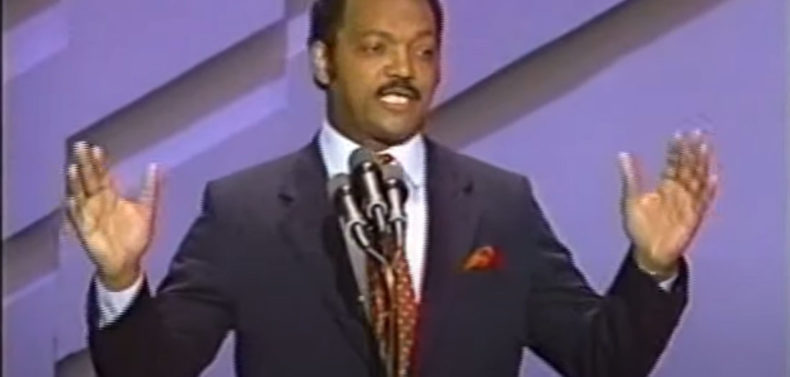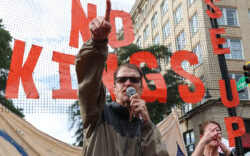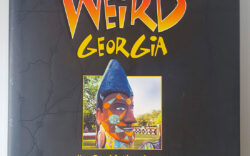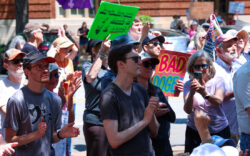H. L. Mencken was a caustic and controversial columnist for The Baltimore Sun who covered every national political convention from 1904–1948. His commentary about American politics and reporting of such events as the 1925 “monkey trial” that pitted the science of evolution against the doctrines of religious fundamentalism earned him the sobriquet “the sage of Baltimore.” Today, the old sage might be saddened by the conventions of both the Democratic and the Republican parties, which have become socially and politically distanced affairs in this age of coronavirus.
“There is something about a national convention that makes it as fascinating as a revival or a hanging,” Mencken wrote in 1924. “It is vulgar, it is ugly, it is stupid, it is tedious. It is hard upon both the higher cerebral centers and the gluteus maximus, and yet it is somehow charming.” The old newspaperman might be dismayed by today’s political conventions, which have become glitzy TV shows and online infotainment.
I attended my first political convention in 1988, when the Democratic Party held its quadrennial gathering in Atlanta. At the time, I was a writer for the Athens Observer weekly paper, and I was elated that a convention would be held only an hour away from Athens. It was a heady experience for a small-town scribe to have a floor pass at such an event, and I was not disappointed. As I walked onto the floor of the convention, a band was blaring a Sousa march and delegates wearing eccentric hats were hoisting placards representing the 50 states of this sprawling republic. The frenetic scene was like a pop-up civics book come to life.
The Democrats in 1988 nominated Massachusetts Gov. Michael Dukakis as their presidential standard-bearer, but the candidate’s dull demeanor was fodder for his GOP opponent, Vice President George H. W. Bush, and for political satirist Mark Russell, who dubbed Dukakis “Zorba the Clerk.” It was the soaring rhetoric of civil rights firebrand Jesse Jackson that brought life to the Atlanta convention. Speaking for more than an hour in the rhythmic cadences of a pulpit-pounding preacher, Jackson exhorted his audience in the convention hall and across America to “never surrender… keep hope alive.” Then as now, Jackson was both revered and reviled, but his 1988 speech in Atlanta remains one of this nation’s great orations.
Prowling the hallways of the Atlanta convention site after Jackson’s speech, I got quotes and notes from a cross section of prominent Democrats. Texas politician Ann Richards, who had wowed the crowd with her own speech lambasting Bush as “born with a silver foot in his mouth,” called me “honey” as she drawled that she found Jackson’s speech “fabulous and inspiring.” Florida congressman Claude Pepper told me, “It was an innovative experience to see a Black man speaking at the national Democratic convention, a serious candidate for president talking about American democracy and about a greater and better America for the future.” Senator and future Vice President Al Gore said to me that his party would “go all the way in November.” Former Vice President Walter Mondale echoed that optimism, telling me, “I can smell victory in 1988.” Such optimism proved unfounded, as Dukakis lost a double-digit lead in the polls and ended up on the losing side in the general election—an electoral fate that should be a cautionary tale for today’s Biden/Harris campaign.
In Atlanta in 1988, as at most pre-COVID conventions, the protests and speeches outside the convention often were more exciting and relevant than the events inside the hall. Atlanta police pushed back crowds of protesters during a street confrontation with white supremacists during the 1988 convention, but unlike the tempestuous demonstrations during the 1968 Democratic convention in Chicago, no tear gas was used and no arrests were made. At a speech at an “alternative convention” at an Atlanta nightclub, fireworks blazed in the night sky as activist Abbie Hoffman told his audience, “It’s up to the people who care about America” to seek change by both voting and protesting. Hoffman—who was arrested during the 1968 Chicago convention and was later a defendant in the Windy City show trial of American antiwar leaders—got laughs from his listeners when he was asked if there were fireworks at the Chicago convention. “Yeah, but they were at ground level,” he responded.
The 1988 convention in Atlanta was my first convention, but it was not my last. I was on the scene with pen and camera documenting political conventions and protests in Chicago in 1996, when the Democrats nominated Bill Clinton for a second term. In 2000 I was in Philadelphia when George W. Bush accepted the GOP nomination while police and protesters clashed outside the convention hall. In 2004 I was in New York City when Bush was nominated for his second term. While taking notes and photos during nonviolent protests outside that convention, I was arrested and jailed overnight along with more than 1,800 activists, journalists and bystanders who years later won a class-action lawsuit against New York authorities that resulted in cash settlements for the citizens who were unlawfully jailed during the convention. I gave part of my payment to Habitat for Humanity, a worthy charity that former President Jimmy Carter supports today. In 2012 I took the train from Georgia to Charlotte to attend the Democratic convention that nominated Barack Obama for a second term.
Conventions may be forever changed in style and format during this age of computers and coronavirus, but one thing that will not change is the wisdom of the words of Army General and Republican President Dwight D. Eisenhower, who said, “Politics should be the part-time profession of every citizen.”
Like what you just read? Support Flagpole by making a donation today. Every dollar you give helps fund our ongoing mission to provide Athens with quality, independent journalism.










